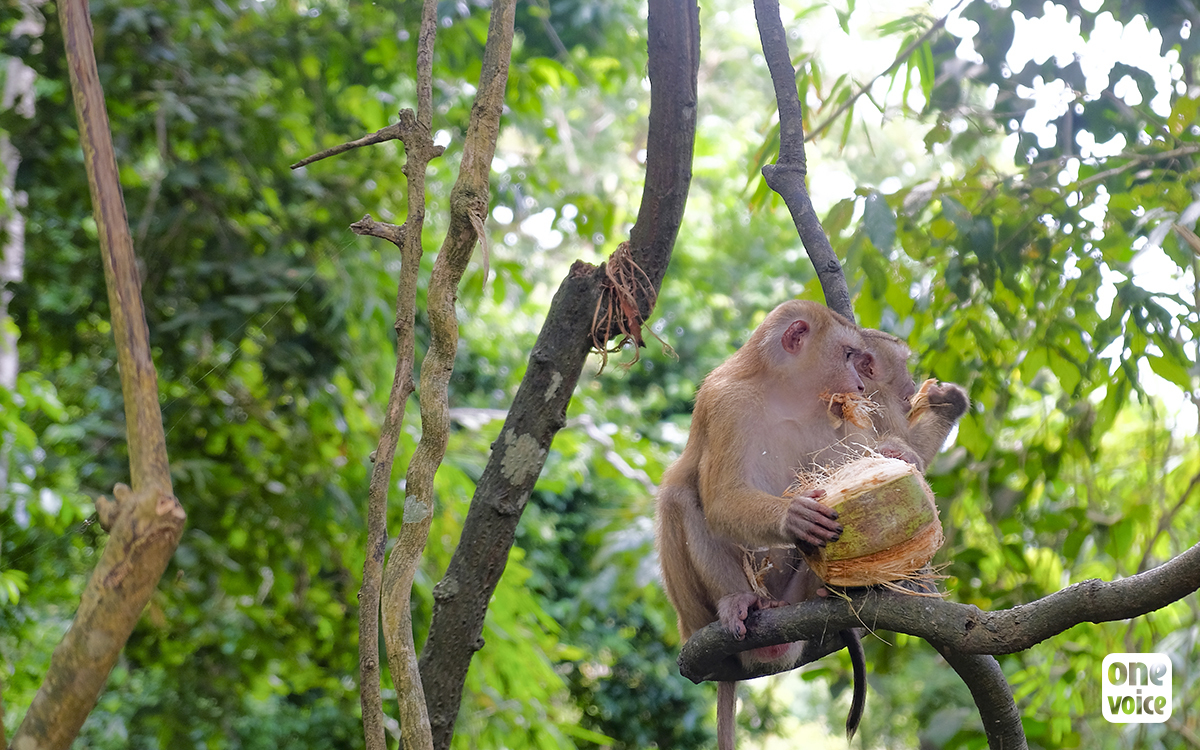

Ratchaprao, a guaranteed and certified coconut oil without the exploitation of monkeys
The One Voice label has ended
In October 2022, we made the difficult decision to end the One Voice label. Our partnerships with the brands involved have therefore gradually ended, and we have since focused on other ways to develop our campaign against animal testing.
Christophe Gambet, a French entrepreneur who decided, after ten years of working in electronics in Grenoble decided to find coherence between his personal and ethical engagements along with his social commitments to create Ratchaprao. This is a brand labelled by One Voice and guaranteed not to have been used in animal experimentation or the exploitation of monkeys in the harvesting of coconuts.
Its goal: to offer people who wish for a more virtuous online trade, to offer the sale of products from far away countries of very good quality and respectful both to nature and to animal and human kind. The discovery of coconut oil from Asia, which sold extremely well in Europe which often casts a shadow over ethics. This convinced him to enter into the online trade of his product. Being vegan himself for a few years, he was keen to select a producer sharing the same values as him, and who does not exploit any monkeys or any other animals.
This allowed him to combine his desires for travel with retraining in accordance with his convictions.
A consistent and comprehensive label
Because millions of tons of coconuts are grown and harvested every day across Southeast Asia. The bulk of the production comes from Indonesia, the Philippines, India, Sri Lanka, Thailand … and the quality is very variable. Up to 8 million coconuts can be processed daily by some very unscrupulous suppliers. They use an intensive farming system exploiting many of the small producers, as well as an ultra-fast harvesting method.
Monkeys, exploited in every possible way
Culturally, in Southeast Asia, monkeys are trained “the hard way,” just like elephants, trained in a way to perform all kinds of tasks for the benefit of humans. It is not uncommon to see monkey’s perform archery or elephants playing basketball, as seen in circuses in France, and applauded by both the local population and by Western tourists. But these poor animals are also trained for other purposes: for agricultural work such as cutting down trees and transporting them through the jungle this task is done by elephants or harvesting coconuts, this task is carried out by monkeys. There is even a dressage school in Thailand which makes this its specialty.
We can also easily come across trucks full of these monkeys when we cross the remote rural areas of these countries – monkeys which make up this free workforce, enslaved for life, who do not benefit from any break during the day and whom, if interrupted are severely beaten. However, it is very difficult to find a coconut producer who displays them: Westerners are known for not appreciating these practices. They therefore hide them from customers and sometimes even from their wholesale purchasers. On the other hand, the rates and tariffs are telling: when a man can harvest one hundred coconuts a day, distinguishing well the maturity of the harvest, a monkey collects more than 1000, or even sometimes 1500. This makes it possible to obtain a low price, especially since in terms of quality, monkeys do not differentiate between damaged or perfect coconuts.
A guarantee of quality and ethics
How did Christophe Gambet do it, to obtain the guarantee to buy coconuts from crops harvested by humans for Ratchaprao? First by avoiding the large companies, which are not transparent and offer prices at a few cents per kilo. Whatever the suppliers say, monkeys are used. They do not guarantee any traceability.
To be able to obtain organic certification, he also had to exclude from his purchases the very small producers, whose quality was not lacking, but whose infrastructure did not allow them to meet European organic standards.
After having prospected for almost two years, he therefore finally selected a single Thai supplier, of medium size, with admittedly higher prices, but who also subscribed to a sincere and quality approach.
Unexpected visits to the plantations were planned by Christophe Gambet. Admittedly, the first visits and all the elements advanced by his Thai collaborator were convincing, but to obtain the One Voice label “without exploitation of monkeys in the coconut farming”, he must be sure of this over time.
Ratchaprao is therefore a company which guarantees a premium coconut oil, obtained without exploitation of the monkeys who harvest them and are not tested on animals. This is why it obtained the One Voice label, which is specific to this type of product.
The One Voice label has ended
In October 2022, we made the difficult decision to end the One Voice label. Our partnerships with the brands involved have therefore gradually ended, and we have since focused on other ways to develop our campaign against animal testing.